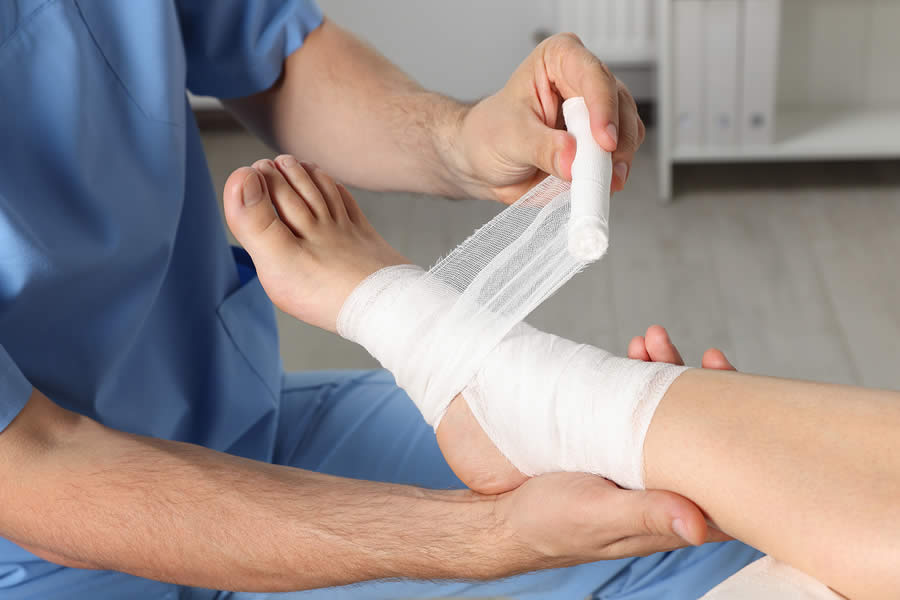
Heel pain can get in the way of everyday activities and even make standing still a grueling task. There are quite a number of causes of heel pain, and you can usually mitigate the pain on your own, but you should see a physician or podiatrist if the pain is persistent and severe. In this article brought to you by Podiatry Centers of Maryland, we will go over common causes of heel pain and their symptoms and provide advice on when to get urgent treatment. If your heel pain is preventing you from walking or standing, then call Podiatry Centers of Maryland to schedule an appointment with a local podiatrist today.
Foot and ankle soreness can be a natural result of exercising too much or wearing poorly-fitting shoes, but this discomfort should not last too long. If rest does not provide relief, then you may have a more serious issue at the root. Common causes of severe and chronic heel pain include:

Heel pain or soreness can be a natural result of excessive or sudden bursts of exercise, but persistent and severe pain can indicate a deeper complication that should be addressed by a qualified physician. You should see a doctor if:

Are you looking for a doctor for heel spur treatment or heel pain treatment? Residents in Maryland can call Podiatry Centers of Maryland to schedule a convenient appointment. You are also welcome to visit our foot care clinic to arrange a walk-in appointment. Our friendly team is on standby for your call or visit today.
You may have noticed that babies usually have relatively flat feet, with a minimal or…
Read MoreA toe sprain can be a painful and immobilizing injury. This common foot injury happens…
Read MoreBecoming a podiatrist, or foot doctor, is a remarkable journey that offers a host…
Read More